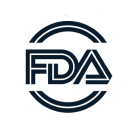Talk to live agent (Mon – Fri: 9:30am – 6:30pm EST).
(866) 294-3772
More questions? Visit our FAQ page
It's not too late...
FDA-approved prescription
treatment for receding hairline
Clinically proven to regrow
thinning hair in just 6 months
Promotes hair growth and
reverses hair loss
Prescription finasteride (generic Propecia) available for as little as $13.50/month (that's just $0.45 cents/day)


Rex MD® offers FDA-approved prescription medications that promote hair regrowth and reverse hair loss in men.
Important safety Info

Rex MD® offers FDA-approved prescription medications that promote hair regrowth and reverse hair loss in men.
Important safety Info
Describe your hair loss and medical
history to a US-licensed physician via
Rex MD's online free consultation.

Your hair loss treatment will be
rushed to your door,
with
free 2-day delivery.

We’re here for ongoing care.
Whenever you want to discuss
treatment, just send a message.
Start my free consultation!
No doctor visits. No insurance. No copays.
Get your Rx regrowth treatments delivered right to your door, free!
INDICATIONS AND USAGE Finasteride is indicated for the treatment of male pattern hair loss (androgenetic alopecia) in MEN ONLY. Efficacy in bitemporal recession has not been established. Finasteride is not indicated for use in women.
DOSAGE AND ADMINISTRATION Finasteride may be administered with or without meals. The recommended dose of Finasteride is one tablet (1 mg) taken once daily. In general, daily use for three months or more is necessary before benefit is observed. Continued use is recommended to sustain benefit, which should be re-evaluated periodically. Withdrawal of treatment leads to reversal of effect within 12 months.
DOSAGE FORMS AND STRENGTHS Finasteride tablets (1 mg) are tan, octagonal, film-coated convex tablets with “stylized P” logo on one side and Finasteride on the other.
CONTRAINDICATIONS Finasteride is contraindicated in the following:
Pregnancy Finasteride use is contraindicated in women when they are or may potentially be pregnant. Because of the ability of Type II 5α-reductase inhibitors to inhibit the conversion of testosterone to 5α-dihydrotestosterone (DHT), finasteride may cause abnormalities of the external genitalia of a male fetus of a pregnant woman who receives finasteride. If this drug is used during pregnancy, or if pregnancy occurs while taking this drug, the pregnant woman should be apprised of the potential hazard to the male fetus. In female rats, low doses of finasteride administered during pregnancy have produced abnormalities of the external genitalia in male offspring. Hypersensitivity to any component of this medication.
WARNINGS AND PRECAUTIONS Side effects may include decreased interest in sex and/or trouble having an orgasm. Talk to your doctor if you have concerns about these side effects. Exposure of Women — Risk to Male Fetus Finasteride is not indicated for use in women. Women should not handle crushed or broken Finasteride tablets when they are pregnant or may potentially be pregnant because of the possibility of absorption of finasteride and the subsequent potential risk to a male fetus. Finasteride tablets are coated and will prevent contact with the active ingredient during normal handling, provided that the tablets have not been broken or crushed.
Effects on Prostate Specific Antigen (PSA) In clinical studies with finasteride 1mg in men 18-41 years of age, the mean value of serum prostate specific antigen (PSA) decreased from 0.7 ng/mL at baseline to 0.5 ng/mL at Month 12. Further, in clinical studies with Finasteride 5 mg when used in older men who have benign prostatic hyperplasia (BPH), PSA levels are decreased by approximately 80%. Other studies with Finasteride 5 mg showed it may also cause decreases in serum PSA in the presence of prostate cancer. These findings should be taken into account for proper interpretation of serum PSA when evaluating men treated with finasteride. Any confirmed increase from the lowest PSA value while on Finasteride may signal the presence of prostate cancer and should be evaluated, even if PSA levels are still within the normal range for men not taking
Increased Risk of High-Grade Prostate Cancer with 5α-Reductase Inhibitors Men aged 55 and over with a normal digital rectal examination and PSA ≤3.0ng/mL at baseline taking finasteride 5 mg/day (5 times the dose of Finasteride) in the 7-year Prostate Cancer Prevention Trial (PCPT) had an increased risk of Gleason score 8-10 prostate cancer (finasteride 1.8% vs placebo 1.1%).
Similar results were observed in a 4-year placebo-controlled clinical trial with another 5α-reductase inhibitor (dutasteride, AVODART) (1% dutasteride vs 0.5% placebo). 5αreductase inhibitors may increase the risk of development of high-grade prostate cancer. Whether the effect of 5α-reductase inhibitors to reduce prostate volume, or study-related factors, impacted the results of these studies has not been established.
Pediatric Patients Finasteride is not indicated for use in pediatric patients.
Finasteride is for use by MEN ONLY and should NOT be used by women or children.
Read this Important Safety Information before you start taking finasteride and each time you get a refill. There may be new information. This information does not take the place of talking with your healthcare provider about your medical condition or treatment.
What is finasteride? Finasteride is a prescription medicine used for the treatment of male pattern hair loss (androgenetic alopecia). It is not known if finasteride works for a receding hairline on either side of and above your forehead (temporal area). Finasteride is not for use by women and children.
Who should not take finasteride?
Do not take Propecia if you:
What should I tell my healthcare provider before taking finasteride?
Before taking finasteride, tell your healthcare provider if you:
Withholding or providing inaccurate information about your health and medical history in order to obtain treatment may result in harm.
How should I take finasteride?
What are the possible side effects of finasteride
The most common side effects of Finasteride® and generic Finasteride® are:
The following have been reported in general use with finasteride:
Keep PROPECIA and all medicines out of the reach of children. General information about the safe and effective use of PROPECIA. 3 Medicines are sometimes prescribed for purposes other than those listed in this Patient Information leaflet. Do not use PROPECIA for a condition for which it was not prescribed. Do not give PROPECIA to other people, even if they have the same symptoms you have. It may harm them.
If you are experiencing a medical emergency, call 911 or seek immediate medical attention.
Withholding or providing inaccurate information about your health and medical history in order to obtain treatment may result in harm, including, in some cases, death.
You are encouraged to report negative side effects of prescription products to the FDA at 1-800-FDA-1088.